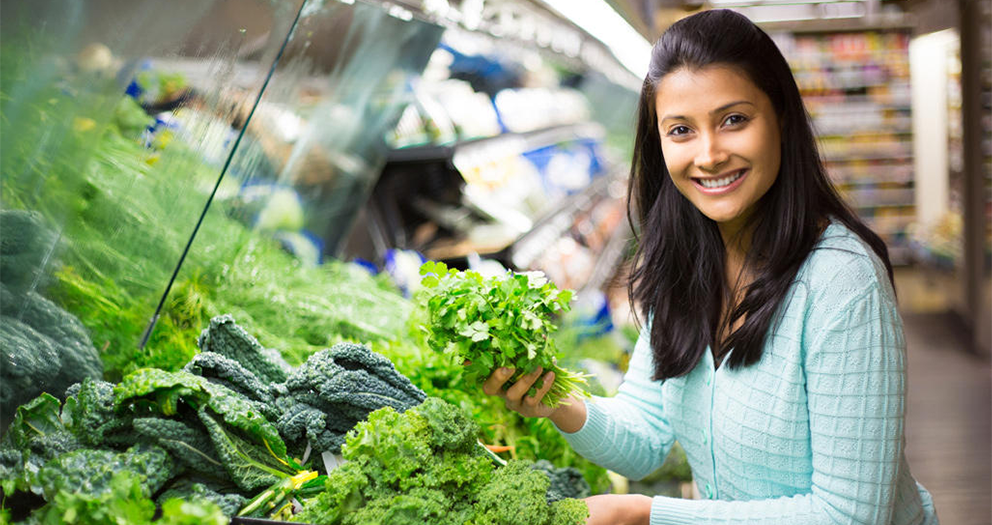PCOD is common in many women of reproductive age. It causes the ovaries to release many eggs that are not fully mature or turn into cysts. As a result, women suffering from PCOD will experience irregular periods or prolonged menstrual cycles. Therefore it is essential to know about PCOD and its causes in the early stages to avoid its consequences in the future.
What is the need for a healthy diet in PCOD
The exact cause of PCOD is still unknown. However, what people eat has a vital role in it. Eating unhealthy junk foods with a lot of fat will lead to obesity. Obesity increases insulin levels, which causes the production of male hormones. As a result, women affected with PCOD show male features like body hair growth, acne, and baldness. Other signs of PCOD include irregular or absent periods, type 2 diabetes, migraine, heart issues, and psychological problems. If you are not careful, the polycystic ovarian disease can lead to ovarian cancer. Therefore, it is essential to maintain a healthy diet plan for PCOD; at TheLifekart, our nutritionist will help you build a customised diet plan.
Foods to eat in PCOD
Certain foods have proven to help manage PCOD. Experts recommend a diet with anti-inflammatory properties and low glycemic index foods. Adding the following foods to part of your healthy PCOD diet is better.
1. Eat more Fiber
Fiber plays a significant role in managing PCOD. As a low Glycemic index food, fiber offers numerous advantages for the body, like improving insulin sensitivity and lowering cholesterol levels and blood sugar levels. You can add the following important fiber to your diet:
1.1 Whole grains:
Whole grains help to reduce blood sugar levels. In addition, whole grains containing soluble and insoluble fibre benefit our body in managing PCOD. You can add whole grains to your diet like wheat, oatmeal, millets, brown rice, barley, etc.
1.2 Fruits:
Fruits are a good source of fibre in managing PCOD. Generally, eating fruits with the skin have a lower glycemic index and digest slowly. You can eat fruits like apples, peaches, strawberries, blueberries, kiwi etc.
1.3 Vegetables:
Vitamins from vegetables are essential for managing PCOD. Leafy vegetables are a good source of vitamin B. They’re rich in nutrients with low calories, perfect for maintaining weight loss. Including this as a part of daily diet is ideal for managing PCOD. You can add vegetables like carrot, bitter gourd, snake gourd, ladies finger etc.
2. Anti-inflammatory foods
Anti-inflammatory foods help decrease body weight and cholesterol levels. Inflammation-based foods will cause PCOD and signal the body to stop ovulating. Anti-inflammatory foods like tomatoes, green tea, pepper, turmeric, ginger, cinnamon, flax seeds etc., can be added to your diet.
3. Healthy fats
Eating more healthy fats is suitable for women with PCOD. Fats are rich in calories—intake of beneficial fat help to reduce appetite and helps manage weight loss and other symptoms of PCOD. You can include fats like olive oil, coconut oil, avocado, desi ghee, etc.
4. Include proteins
A protein-rich food is also good to include in your PCOD management diet chart. Protein will help you feel fuller for a long and thereby manage weight. So make sure to have some protein in an everyday meal, such as fish like salmon, tuna, skinless chicken, and plant proteins like peas, beans, etc.
Foods to avoid in PCOD
An increase in insulin levels is common among overweight or obese women suffering from PCOD who do not follow a proper diet. The uncontrolled resistance to insulin can eventually cause the development of diabetes. Therefore, it is vital to control insulin levels by understanding the foods you should avoid to manage your PCOD.
1. Sugary drinks and snacks
Sugar is a carbohydrate and is needed to avoid in the PCOD diet. Therefore, you might cut off the consumption of juice and soda, pastries, and sugary snacks to manage PCOD.
2. Refined carbohydrates
Women who suffer from PCOD have a greater chance of developing diabetes and increased insulin levels with refined carbohydrates. Therefore, it is recommended to avoid white rice, white bread, muffins etc.
3. Dairy products
Dairy products are a source of insulin-like growth factors that increase estrogen levels. As a result, it may worsen the symptoms of PCOD. Avoid the use of milk, ice cream, processed cheeses, paneer etc.
4. Alcohol
PCOD can increase the chance of developing depression. In addition, the consumption of alcohol in PCOD women will increase blood sugar levels, cause liver disease and hormonal imbalance and may lead to stopping ovulating.
5. Fried foods
Fried foods contain unhealthy fat, resulting in a rise in estrogen levels in your body. Therefore, it can increase body weight and the risk of inflammation. It is advised to cut off the consumption of fried and processed foods.


